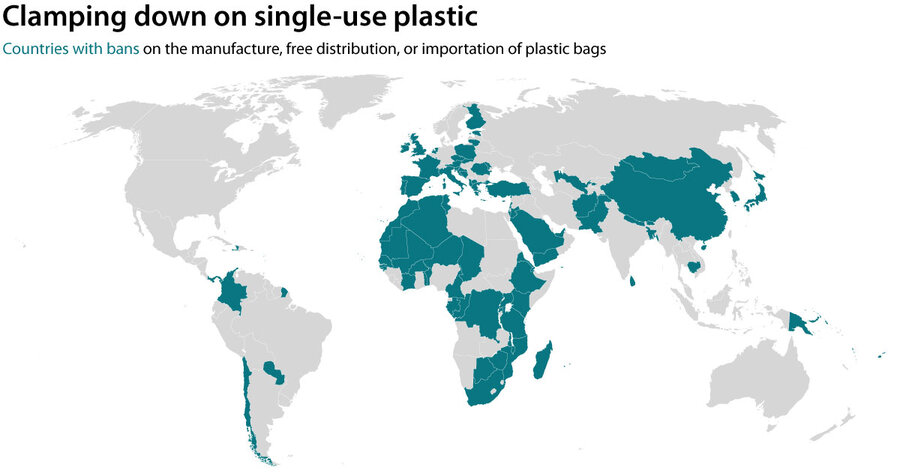The war on plastic bags, by the numbers
Loading...
At least 127 countries now regulate single-use plastic bags at some level, with African nations currently in the lead. Some 34 of them have imposed bans or limits on most forms of single-use plastics and bags. Some have even gone so far as to ban imports of single-use plastics and plastic waste from more developed countries.
But the increase in regulations doesn’t necessarily translate to reductions in plastic winding up in landfills and the ocean. Bans are far from universal, and they can be difficult to enforce. A more effective solution would be to stop the production of plastic bags to begin with, says Carole Excell, acting director of Environmental Democracy Practice at the World Resources Institute.
“If we don’t start caring about restricting production, we will continue to have the same problem,” she says.
The United Nations estimates that the world consumes between 1 trillion and 5 trillion plastic bags per year. Little is known about the overall impact of bans on the waste stream. Some nations have reported a drop in plastic bag consumption, but others have seen little or no change.
“There’s progress,” Ms. Excell says, “but there’s a lot of complexity in actually getting a handle on plastic and the waste that it causes.”
United Nations Environment Programme






